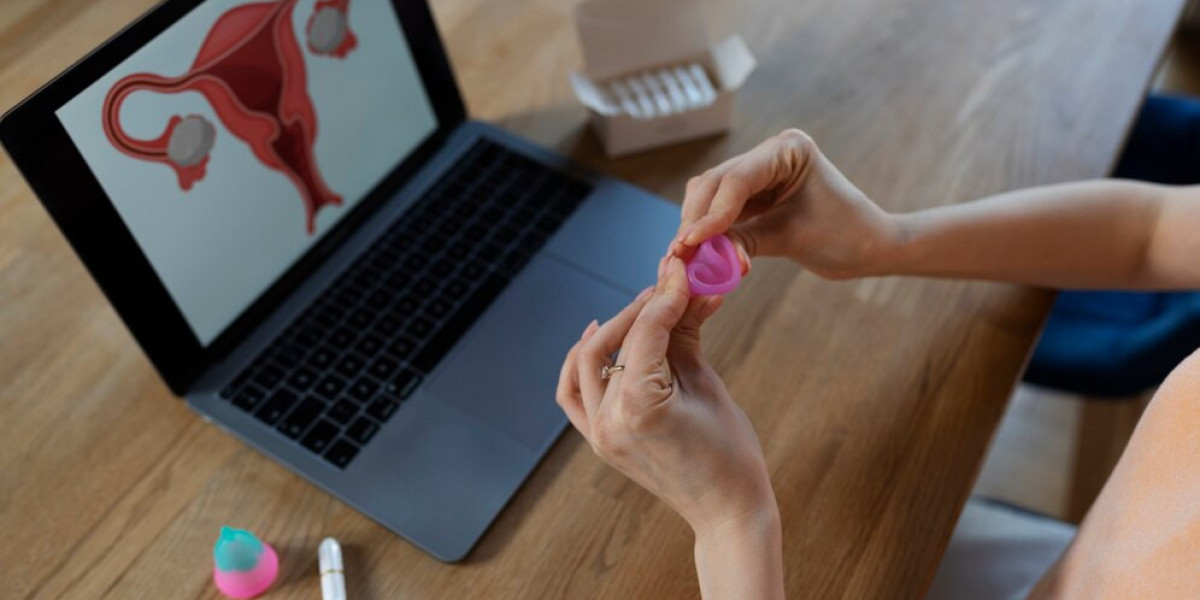Menstruation has long been surrounded by stigma and silence, but recent innovations are transforming how we experience and manage this natural process. From eco-friendly products to tech-driven solutions, here are some key developments reshaping the future of menstruation.
A Note on Organic and Biodegradable Products
As consumers become more conscious of the environmental impact of menstrual products, organic and biodegradable options are gaining traction. These products, made from natural materials like cotton or bamboo, are free from harmful chemicals and are designed to break down naturally, reducing landfill waste. This shift towards sustainable menstruation is not just a trend; it's a necessity for our planet.
Staying Active During the Menstrual Phase
Choose Gentle Activities, Opt for low-impact exercises such as walking, yoga, or light stretching. These can help reduce cramps and provide comfort without overexerting the body. Listen to Your Body, Pay attention to how you feel. If you're experiencing significant discomfort, consider taking a rest day or engaging in very light activities.
Staying Active During the Follicular Phase
Increase Intensity Gradually, as energy levels rise, gradually incorporate more strenuous workouts. This is an excellent time for strength training, cardio, and high-intensity interval training (HIIT). Set Goals, Use this phase to set and pursue fitness goals, taking advantage of the surge in motivation and energy.
Smart Menstrual Trackers
With the rise of wearable technology, smart menstrual trackers have emerged to provide users with valuable insights into their cycles. These devices can monitor symptoms, predict periods, and even analyze hormonal changes. By integrating with mobile applications, they help users understand their bodies better, leading to improved menstrual health management.
Over-the-Counter Remedies and Stress Management
Nonsteroidal anti-inflammatory drugs (NSAIDs) like ibuprofen or naproxen can be effective in managing pain and reducing inflammation.
Some people find relief with herbal supplements like ginger or cramp bark, though it's wise to consult with a healthcare provider before starting any new remedy.
Practices such as meditation, deep breathing exercises, or progressive muscle relaxation can help manage stress and reduce pain perception. Ensuring you get enough restful sleep can significantly impact how you handle pain.
How Sanitary pads for heavy periods plays a role in Menstruation?
Heavy-duty sanitary pads are designed with advanced absorbent materials that can manage larger volumes of menstrual flow. This prevents leakage and ensures that users feel secure throughout the day.
Many Sanitary pads for heavy periods come with features like wings and various sizes to ensure a snug fit. This minimizes movement and enhances comfort, allowing individuals to go about their daily activities without worry.
Health and Wellness Integration
Advances in understanding hormonal health have led to the creation of supplements and products aimed at alleviating PMS and menstrual discomfort. These range from herbal remedies to scientifically formulated vitamins.
With the rise of telehealth, women can now easily access healthcare professionals for consultations about menstrual health, helping to destigmatize discussions around menstruation and providing personalized care.
Subscription Services, Track Your Cycle and Stay Mindful of Symptoms
Convenience Redefined The convenience of subscription services has transformed how menstruators access menstrual products. Companies now offer personalized packages delivered right to the doorstep, eliminating the stress of last-minute purchases. These services often include a mix of products tailored to individual preferences, fostering a more personalized experience.
Use apps or journals to track your cycle and how your energy levels fluctuate. This can help you plan workouts that align with your body’s rhythms.
If you experience severe cramps, fatigue, or other symptoms, it’s okay to modify your routine or take a break. Gentle movement can often help alleviate symptoms.
How Empowering Individuals and Encouraging Supportive Environments plays a role?
When menstruation is discussed openly, individuals are more likely to feel empowered to seek help or resources when they experience problems, whether physical or emotional.
Creating spaces—at home, in schools, and workplaces—where menstruation can be discussed without judgment encourages a supportive atmosphere, helping those who menstruate feel valued and understood.
Education and Awareness, When to Seek Medical Attention?
Campaigns As innovations flourish, education and awareness are equally important in changing perceptions about menstruation. Campaigns aimed at dispelling myths and promoting understanding have emerged worldwide.
By encouraging open discussions, we can dismantle the stigma and empower individuals to embrace their menstrual cycles positively.
It is essential to recognize when menstrual pain may signal a more serious underlying condition. If you experience any of the following, consider consulting a healthcare provider: Severe pain that disrupts daily activities Changes in menstrual patterns Pain accompanied by heavy bleeding or unusual discharge
Conclusion
The future of menstruation is bright, marked by innovations that prioritize sustainability, health, and inclusivity. As societal attitudes continue to evolve, these advancements not only improve menstrual health but also empower individuals to embrace their cycles with confidence and ease. By breaking down barriers and fostering open conversations, we can create a more supportive environment for all menstruators.








